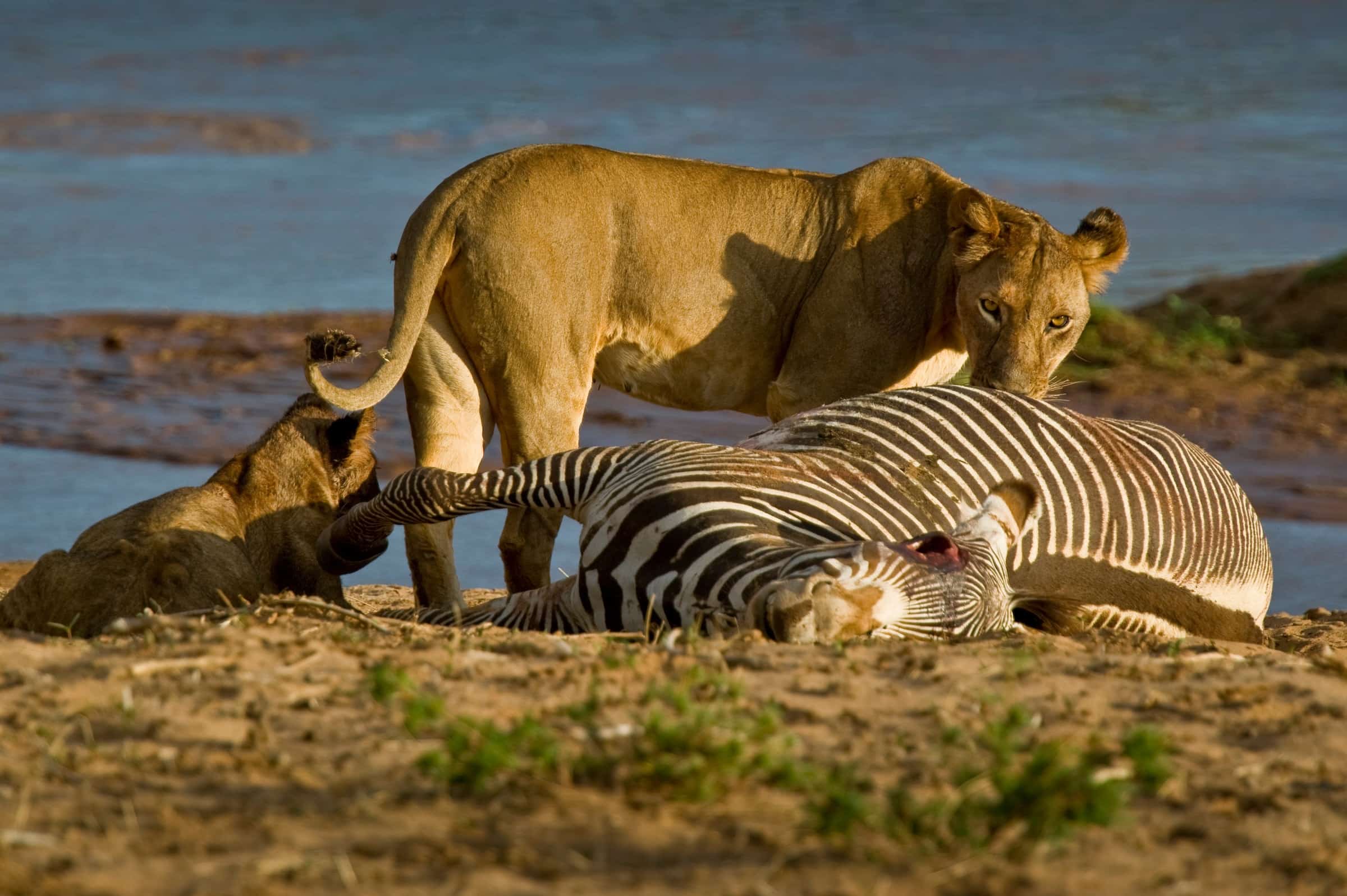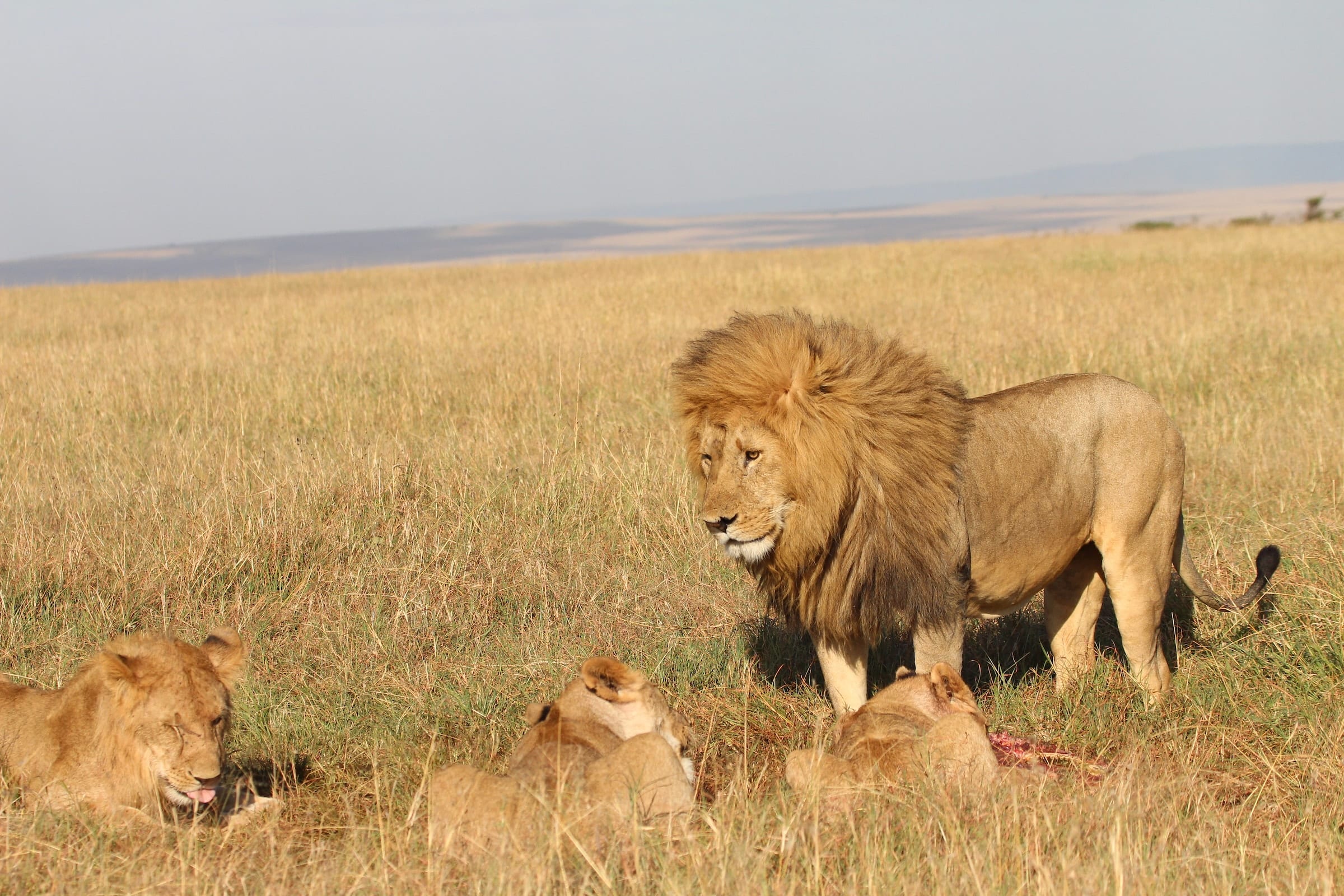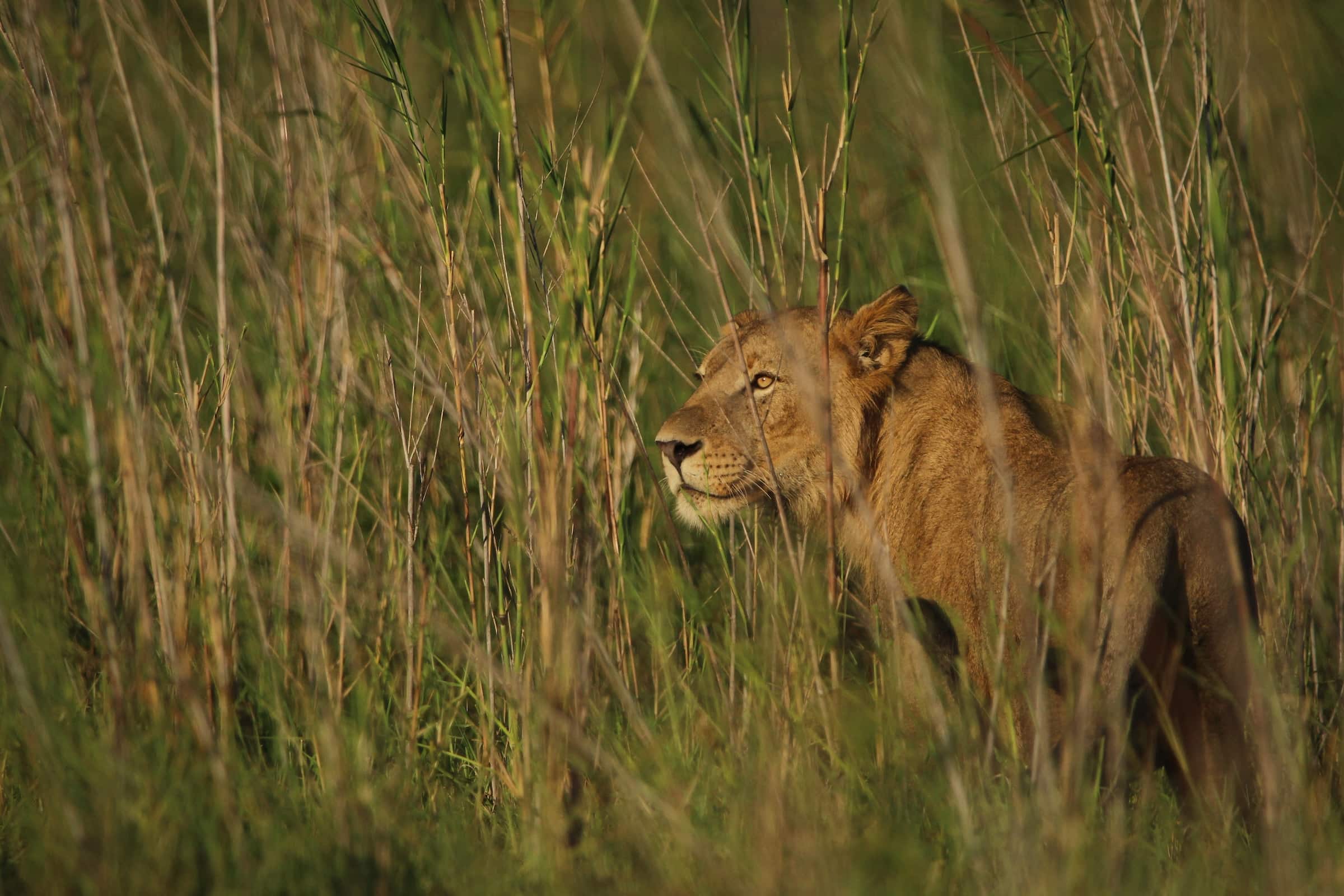Lions are the apex predator of the African savanna. They play the critical role of managing large herbivore populations of buffalos, impalas, zebras, and even elephants and giraffes. In a balanced ecosystem, the number of herbivores needs to be kept in check. If there are too many herbivores, the vegetation is overgrazed and habitats inevitably degrade.

Lions help maintain healthy and resilient herbivore populations. The natural course is that lion prides hunt and kill the weakest of the herd—typically those that may be afflicted with parasites, disease, or are feeble from a hereditary defect. Lions prevent the spread of afflictions and ensure improved genetic health in ungulate populations.

When lions disappear, smaller carnivores in the food chain flourish. This is problematic because these carnivores cannot regulate large herbivore populations and can also lead to disease transmissions. A case in point took place in Ghana after a systemic culling of lions. Thereafter, olive baboons proliferated, and intestinal parasites soon plagued other animals and nearby villagers.

As a keystone species and apex predators, lions are crucial to the habitats they occupy. Without lions, disease spread is likely across species, and vast savanna grassland ecosystems would disintegrate into dysfunctional, barren landscapes impacting all life within.

